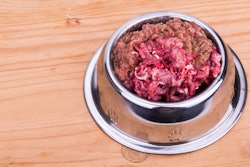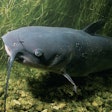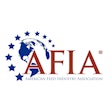
The US Food and Drug Administration (FDA) has recently provided draft guidance on best practices for convening a GRAS (Generally Recognized As Safe) expert panel (see sidebar, “Relevant FDA links”). The determination of a substance as GRAS is one means to allow for use of a novel ingredient in pet foods distributed in the United States. This method of documenting safety has its advantages and disadvantages over other processes (e.g., filing a Food Additive Petition or an AAFCO Feed Ingredient Definition), but is best reserved for substances where the vast bulk of the available supportive data is in the public domain. Formal notification of FDA as to a determination of a substance as GRAS is not legally required, but for practical purposes is usually prudent in the case of animal feed ingredients.
Whether notification to FDA is made or not, convening a panel of experts to review and opine on the available data to support safe use of an ingredient is perhaps the best means of confirming GRAS status. To that end, pet food and ingredient companies considering this approach should take heed of FDA's advice in forming and convening a panel. The 30-page document offers significant detail in this regard. Considerations should include:
1. Appropriate and balanced expertise of panelists
The experts comprising a GRAS panel are essentially serving as proxies for the scientific community at large. No one person can be an expert on everything, so diversity in training and perspective among panelists is critical in ensuring that all aspects of safety are addressed. While the number of panelists needed to attain this wide range of expertise may vary, I have found in my experience serving on quite a few panels that at least three experts are usually needed.
- Much of a GRAS dossier includes data to address not only acute and chronic toxicity, but also factors such as mutagenicity and carcinogenicity. In my opinion, presence of a toxicologist on the panel is paramount.
- Obviously, the expertise of a nutritionist is critical to any evaluation of a substance intended for its nutritive value. However, even for a non-nutritive substance, such as a preservative or anticaking agent, the fact that it is intended to be in the food and/or drinking water requires a careful assessment of anticipated intake of food/water by the animal so that the estimated exposure to the substance can be reliably determined.
- I also recommend someone with specific knowledge of the substance or class of substances in question to serve on the panel. Particularly for a substance that has been produced by use of genetic engineering, an expert in that field is vital.
2. Control of potential bias and conflicts of interest among panelists
Bias can come in many forms (e.g., confirmation bias, outcome bias) and strategies to control that in selection of panelists and during the panel's deliberations are suggested. A panelist's conflict of interest could seriously damage the credibility of the entire panel. The proponent or organizer of the panel, its lawyer, agent or employee, or others that have a financial or other vested interest in the outcome (either directly or through relatives or other close associations) should be excluded from service. In my opinion, someone that has consulted for a company on other matters but does not rely on that business relationship as a major source of income could potentially qualify. Regardless, documentation of any potential conflicts or appearances of conflicts prior to panel deliberation is prudent.
3. Limits on data and information shared with panelists
FDA recommends organizers to minimize the amount of non-public information made available to the panel, unless that information itself raises question as to the safety of the substance (then it definitely should be provided). With appreciation that the scientific community at large may not have easy or full access to that same information, in my experience that restriction could inadvertently impair the panel's deliberations. Certainly, data not in the public domain cannot be used as pivotal evidence of safety, as anything critical in reaching a conclusion of GRAS needs to be publicly available. However, FDA regulations expressly allow for corroborative data from unpublished scientific studies and other sources to be considered in a determination of GRAS status. It appears contradictory to say that same data shouldn't be shared with the panel.
As the FDA guidance is a draft document, public comment is welcome. Comments can be made at any time, but to ensure that FDA considers your comment on this draft guidance before a final version is issued, comments should be sent by May 15, 2018. The most convenient means to submit comments is electronically, via the regulations.gov web site (refer to Docket No. FDA-2017-D-0085).
For more insights by Dr. Dzanis


















